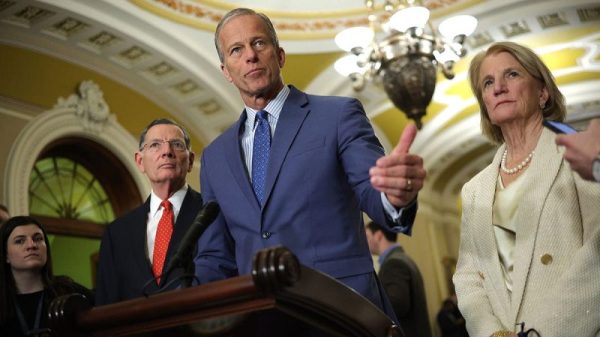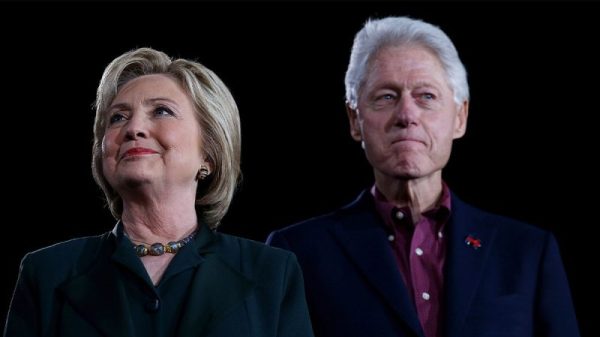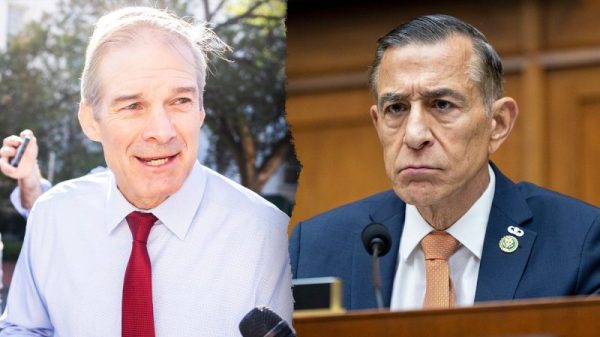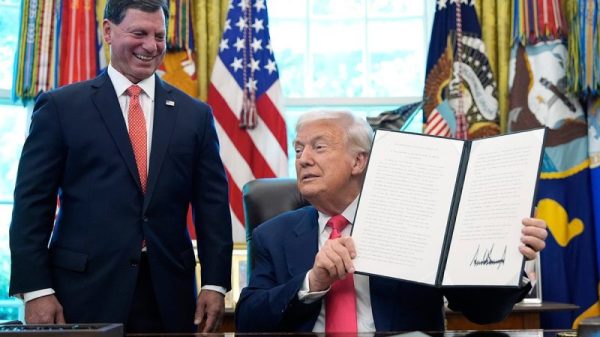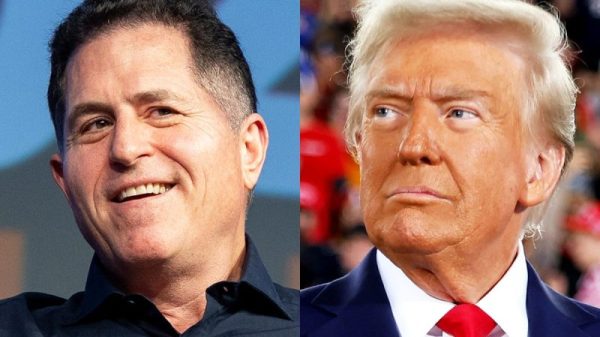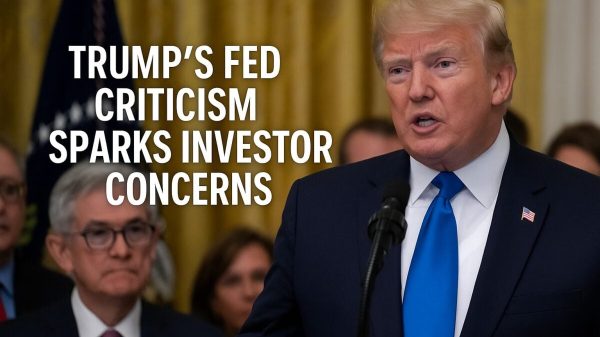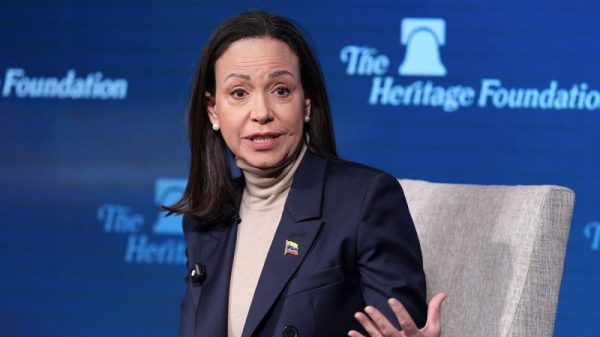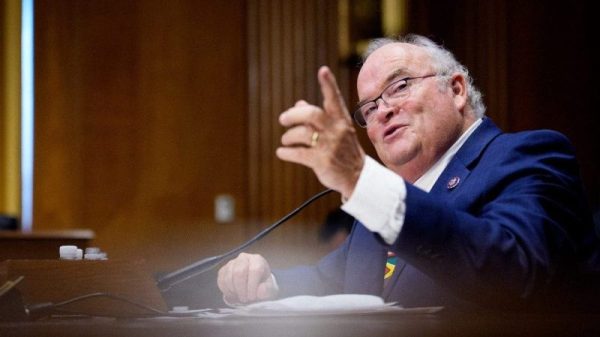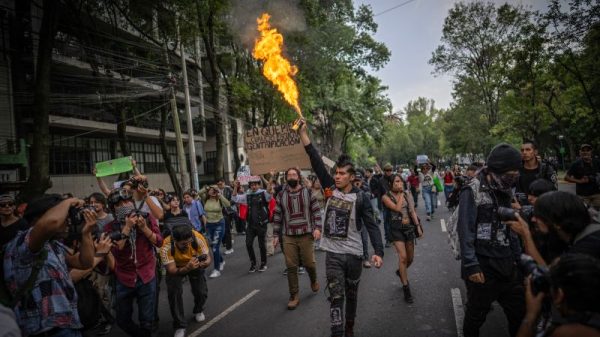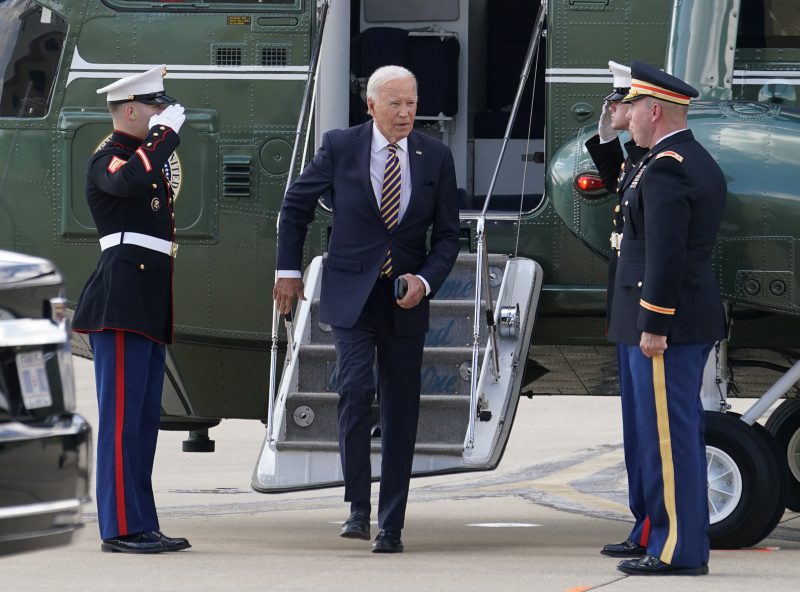President Joe Biden will head to the United Nations General Assembly on Monday, seeking to cement his foreign policy legacy amid the growing threat of war between Israel and Hezbollah and questions about his administration’s handling of Gaza.
The annual gathering, which brings together world leaders in New York, will mark one of Biden’s final opportunities to lay out his accomplishments on the global stage. But allies and experts said sideline discussions about the crisis in the Middle East are likely to dominate, complicating his effort.
“Joe Biden, more than most presidents, has a history of foreign policy activity and accomplishments and I’m sure he wants to go out on a high note. But the Israel-Lebanon issue is going to make that very hard to do,” said Bruce Riedel, a senior fellow at the Brookings Institution who worked on Middle East issues in several administrations.
“UNGA could become an all-Lebanon UNGA, which is not what the administration wants,” Riedel added. “This is a crisis I’m sure the Biden team is doing everything it can to prevent, but it doesn’t look like the odds are in their favor.”
Biden is likely to emphasize his work rebuilding alliances and leading the Western coalition to aid Ukraine in the aftermath of Russia’s 2022 invasion. Biden’s aides and fellow Democrats have also touted his China policy, particularly after his national security adviser, Jake Sullivan, recently visited the country and met with President Xi Jinping.
Vice President Kamala Harris is not scheduled to attend the high-level gathering in New York but is expected to hold meetings in Washington, including with United Arab Emirates President Mohamed bin Zayed al-Nahyan on Monday and Ukrainian President Volodymyr Zelensky on Thursday, according to the White House. Both Biden and Harris will meet with the leaders at the White House, but Harris will also meet separately with both men.
“Everyone understands this election is really, really close. It’s less about trying to figure out what Kamala Harris represents, because she is the sitting vice president — everyone understands more or less there’s going to be continuity,” said Ian Bremmer, president and founder of Eurasia Group. “The real issue for everybody out there is what happens if [former president Donald] Trump wins. And they know Trump can win.”
While in New York, Biden will meet with U.N. Secretary General António Guterres and host a summit of the Global Coalition to Address Synthetic Drug Threats, an effort the United States launched last year, White House spokesman John Kirby told reporters last week. But perhaps more notable, analysts and experts said, are the unofficial discussions.
“There are essentially two UNGAs. There’s the official agenda and then there’s what everyone’s talking about, and those two things rarely match,” said Jeffrey Feltman, a former top U.N. official and the U.S. ambassador to Lebanon during the 2006 Israel-Lebanon war. “Really, everybody is going to be talking about Gaza, the Middle East, the fear of escalation and Ukraine.”
It has now been nearly a year since Hamas militants stormed through the Israel-Gaza border fence and killed about 1,200 people, many of them civilians, and took about 250 hostage. In the aftermath of that attack, Israel launched a brutal operation in Gaza that has killed more than 41,000 Palestinians, according to the Gaza Health Ministry, and fueled an ongoing humanitarian catastrophe.
Biden’s Middle East strategy has hinged on securing a cease-fire between Israel and Hamas in Gaza, an agreement that senior U.S. officials acknowledge is ever more elusive. The hope was that a cease-fire would pave the way for a diplomatic deal between Israel and Hezbollah on Israel’s northern border.
Asked on Friday whether a cease-fire deal was realistic, Biden said, “A lot of things don’t look realistic until we get them done. We have to keep at it.”
Allies and experts have lamented that the administration does not appear to have a Plan B to calm tensions in the Middle East outside of the cease-fire efforts. Hezbollah has vowed to continue firing rockets into Israel as long as the war in Gaza continues, dimming hopes that a diplomatic deal is on the horizon.
An Israeli operation last week detonated pagers and walkie-talkies used by the militant group, killing at least 37 people and injuring thousands. Hezbollah leader Hasan Nasrallah vowed retaliation, and Israel on Friday launched what it said was a targeted strike in Beirut against a Hezbollah leader that killed at least 51 people as of Sunday and destroyed two buildings, according to Lebanese officials, amid some of the most intense Israeli cross-border bombardments since the war in Gaza began.
U.S. officials stressed that they were not involved in the Israeli operation detonating electronic devices and said they were only briefed about it afterward. They have continued to call for calm and said they are still working to secure a cease-fire and diplomatic solution.
But the Israeli operation last week, coupled with the suggestion from top Israeli officials that the focus may shift to Lebanon, appeared to undermine months-long U.S. efforts to end the bloodshed in the region. Biden and his top aides have given no indication that they are looking at a change in policy or withholding weapons to Israel, frustrating Arab allies and prompting criticism from other nations, including those in the Global South.
In a potential sign that U.S. officials believe there is little they can do to convince Israel to change course, some top officials, including Secretary of State Antony Blinken and Defense Secretary Lloyd Austin, opted not to travel to Israel last week to try to calm tensions.
“Their No. 1 goal has to been to prevent an escalation, and here the Israelis go do it again and make it that much more likely it’ll happen,” said Ivo Daalder, who was NATO ambassador under President Barack Obama. “It’s a pretty big slap in the face to their diplomacy. Israel issuing a statement that they’re changing their military strategy means the U.S. perspective is not being taken seriously in Tel Aviv.”

